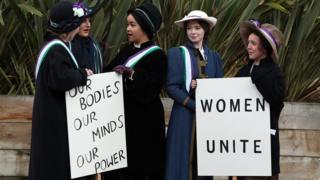 Image copyright PA
Image copyright PA Giving pardons to women who were jailed while fighting for the right to vote would be “complicated”, Home Secretary Amber Rudd has said.
But she said she would “take a look”, 100 years on from some women getting the vote in the UK.
Jeremy Corbyn said a Labour government would apologise to suffragettes and have criminal records overturned.
Helen Pankhurst, great-granddaughter of suffragette Emmeline Pankhurst, said the women had been pardoned by society.
Equality campaign group the Fawcett Society and some relatives of the suffragettes are among those who called on the home secretary to overturn the convictions of women who were imprisoned while fighting for the vote.
But Helen Pankhurst said the suffragettes would be urging women to “continue the fight” rather than “dwell” on their personal sacrifice.
“It was not them breaking the laws that were the problem, it was the laws that were constraining our democracy,” she told BBC Radio 5live.
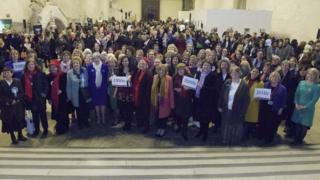 Image copyright UK Parliament
Image copyright UK Parliament The Representation of the People Act was passed on 6 February 1918 and gave women aged over 30 and “of property” the right to vote.
In a speech in Manchester to mark the centenary of women’s votes, Theresa May hailed the “heroism” of the suffragettes.
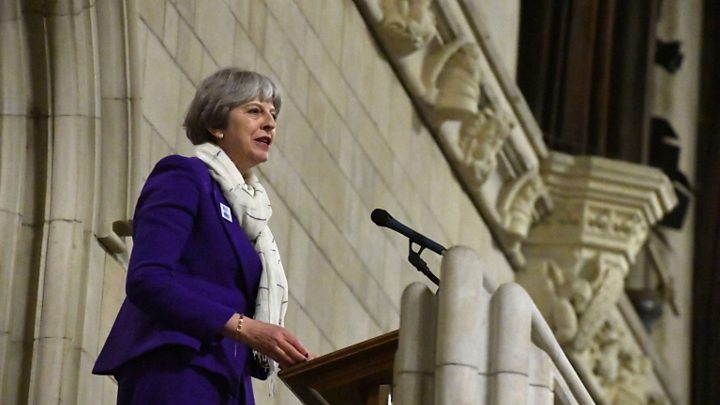
She also used the speech to criticise online abuse and intimidation of political candidates and representatives – often women, gay people and members of ethnic minorities.
“While there is much to celebrate, I worry that our public debate today is coarsening,” Mrs May said. “That for some it is becoming harder to disagree, without also demeaning opposing viewpoints in the process.”
The PM warned “bitterness and aggression” online threatens democracy and deters many people from engaging in politics.
Suffragists or suffragettes?
/* hide intrusive promo features */ .dl-box { display: none !important; } @-moz-keyframes gel-spin { 0% { -moz-transform: rotate(0deg); } 100% { -moz-transform: rotate(360deg); } } @-webkit-keyframes gel-spin { 0% { -webkit-transform: rotate(0deg); } 100% { -webkit-transform: rotate(360deg); } } @-ms-keyframes gel-spin { 0% { -ms-transform: rotate(0deg); } 100% { -ms-transform: rotate(360deg); } } @keyframes gel-spin { 0% { transform: rotate(0deg); } 100% { transform: rotate(360deg); } } .bbc-news-visual-journalism-loading-spinner { display: block; margin: 8px auto; width: 32px; height: 32px; max-width: 32px; fill: #323232; -webkit-animation-name: gel-spin; -webkit-animation-duration: 1s; -webkit-animation-iteration-count: infinite; -webkit-animation-timing-function: linear; -moz-animation-name: gel-spin; -moz-animation-duration: 1s; -moz-animation-iteration-count: infinite; -moz-animation-timing-function: linear; animation-name: gel-spin; animation-duration: 1s; animation-iteration-count: infinite; animation-timing-function: linear; } @font-face { font-family: ‘ReithSans’; src: url(‘//static.bbci.co.uk/frameworks/barlesque/3.21.31/orb/4/font/BBCReithSans_W_Rg.woff2’) format(‘woff2’), url(‘//static.bbci.co.uk/frameworks/barlesque/3.21.31/orb/4/font/BBCReithSans_W_Rg.woff’) format(‘woff’); } @font-face { font-family: ‘ReithSans’; src: url(‘//static.bbci.co.uk/frameworks/barlesque/3.21.31/orb/4/font/BBCReithSans_W_Bd.woff2’) format(‘woff2’), url(‘//static.bbci.co.uk/frameworks/barlesque/3.21.31/orb/4/font/BBCReithSans_W_Bd.woff’) format(‘woff’); font-weight: bold; } html .bbc-news-vj-wrapper { font-family: ReithSans, Helmet, Freesans, Helvetica, Arial, sans-serif; }
Mrs May announced plans for a Law Commission review of legislation to ensure that actions which are illegal in person are also illegal online.
She also promised an internet safety report will be published every year to assess how social media companies are dealing with abuse posted online.
- Reality Check: What if women couldn’t vote?
- How the Suffragettes woke us up
- The women against female suffrage
Meanwhile, a cross-party group of Green, Labour and Liberal Democrat politicians called on the home secretary to make misogyny a hate crime.
In July 2016, Nottinghamshire Police became the first force in the UK to record harassment of women as a hate crime in a bid to tackle sexist abuse, but the scheme has not been rolled out further.

Other ways in which the anniversary is being marked include:
- A public exhibition of life-sized images of the central figures of the suffrage movement in London’s Trafalgar Square
- Portraits of these people will also be in an exhibition at London’s City Hall
- A reception for female MPs past and present in Parliament, hosted by Mrs May
- The Parliamentary Archives will display the 1918 Representation of the People Act itself for the first time
- BBC Radio 4’s Today Programme used only women contributors and an all-female presenter line-up on its show



Records compiled by the England, Suffragettes Arrested, 1906-1914 collection indicate there were more than 1,300 suffragette arrests and many women were jailed.
- Hate mail and firebombs: How women won the vote
- What female MPs wore to mark the occasion
- Suffragette tributes shared online
Emmeline Pankhurst, a founder member of the Woman’s Social and Political Union, and leading suffragettes Emily Davison and Flora Drummond were among them.
Ms Davison was found guilty of placing a “dangerous substance likely to injure” in a post office letter box outside Parliament and sentenced to six months in Holloway Prison.



At the scene
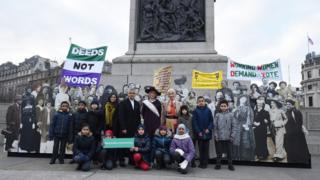

By Francesca Gillett, BBC News
Women and men of all ages gathered outside the pop-up exhibition in Trafalgar Square on Tuesday morning.
In freezing temperatures, the passers-by stopped to look at the cardboard cut-outs of 59 campaigners involved in the women’s suffrage movement, many of whom are unknown faces.
“We forget these women,” said charity worker Lucy Rae, who came to see the exhibition with a colleague.
“I do think it’s quite poignant. You almost want to stand in with them to be part of it and to be one of these women.”
University professor Hazel Barrett, whose grandmother supported the suffragette movement, said people of all classes got involved, adding: “Just look at them, ordinary women”.
Sheree Davey, who came with her young son to see the display, said: “It’s incredible. It inspires you to learn a bit more.
“You know the basics but there’s so much more to it.”
Victoria Taylor, a tourist visiting from Australia, said: “It’s a great way to engage people. It’s not confronting but it’s very prominent.”
The Scottish Tory leader said she supported calls for posthumous pardons for the convicted women as they were simply “righting the wrong” of of an unjust law.
Writing in the Daily Telegraph, Ruth Davidson said: “Voting was a value judgement, not an intrinsic right.”
Ms Rudd, who is also minister for women and equalities, said she would consider the issue.
However, she told Radio 4’s Today Programme: “I must be frank, it is complicated because if you’re going to give a legal pardon for things like arson and violence it’s not as straightforward as people think it might be.”



You might also like:
- Eight things that were bigger killers in the 70s
- Spain cracks king’s 500-year-old code
- Uma Thurman breaks silence on Weinstein attack



Krista Cowman, professor of history at the University of Lincoln, said many suffragettes would “be spinning in their graves” about the idea of being pardoned.
She told Radio 5live: “It was a badge of honour and they were proud of it.”
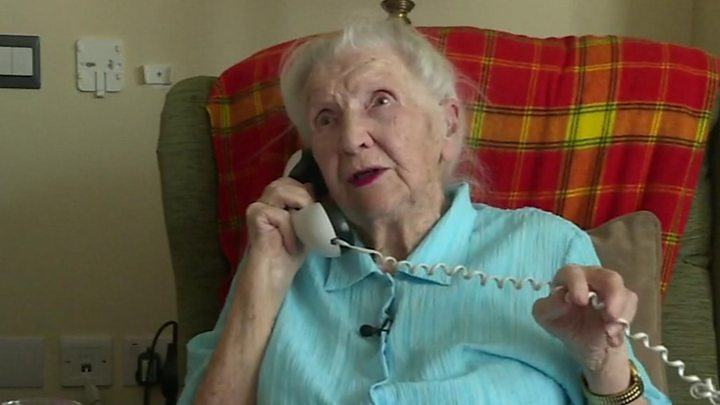

Radio 4’s Woman’s Hour celebrated the 100th anniversary by broadcasting the show from the Pankhurst Centre in Manchester, the birthplace of Emmeline Pankhurst and the suffragette movement.
During the programme Jenni Murray interviewed Mrs May – Britain’s second female prime minister – whose late godmother was a suffragette.


The PM said getting the vote was “the first step” for women to be involved “properly in public life”.
“It was the point at which women were able to start to feel that they could bring their experience, their views, their opinions, into the world of public life,” she added.
Later in the day, Mrs May joined female MPs past and present at a reception in Westminster Hall.
The prime minister was cheered when she said she wanted to see more women in public life – saying it was now up to all of us to “carry forward the torch”.
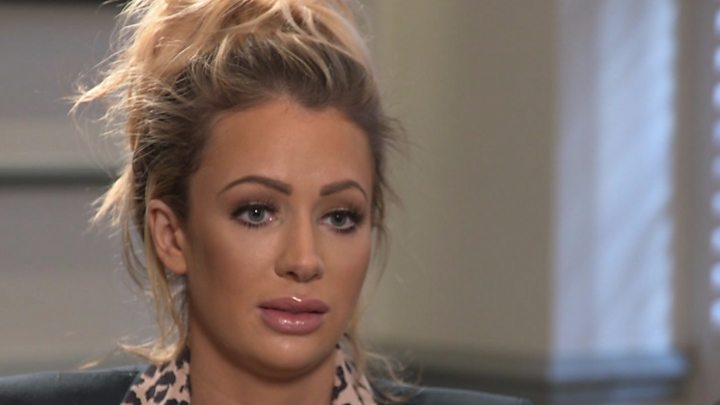

Meanwhile, as a tribute to the suffragettes, Scotland’s First Minister Nicola Sturgeon also announced a £500,000 fund to encourage more women to become involved in politics.
A debate also took place at the Scottish parliament to celebrate 100 years of female suffrage.



Representation of the People Act 1918 – key dates
6 February 1918 – The Representation of the People Act is passed giving women aged over 30 and “of property” the vote
21 November 1918 – The Parliament (Qualification of Women) Act is passed and allows women to stand for Parliament
14 December 1918 – Women vote in a general election for the first time
1928 – The Equal Franchise Act is passed and all women aged over 21 can now vote
30 May 1929 – Women aged between 21 and 29 vote for the first time
30 April 1958 – The Life Peerages Act 1958 allows women to sit in the House of Lords as life peers
Read more: www.bbc.co.uk


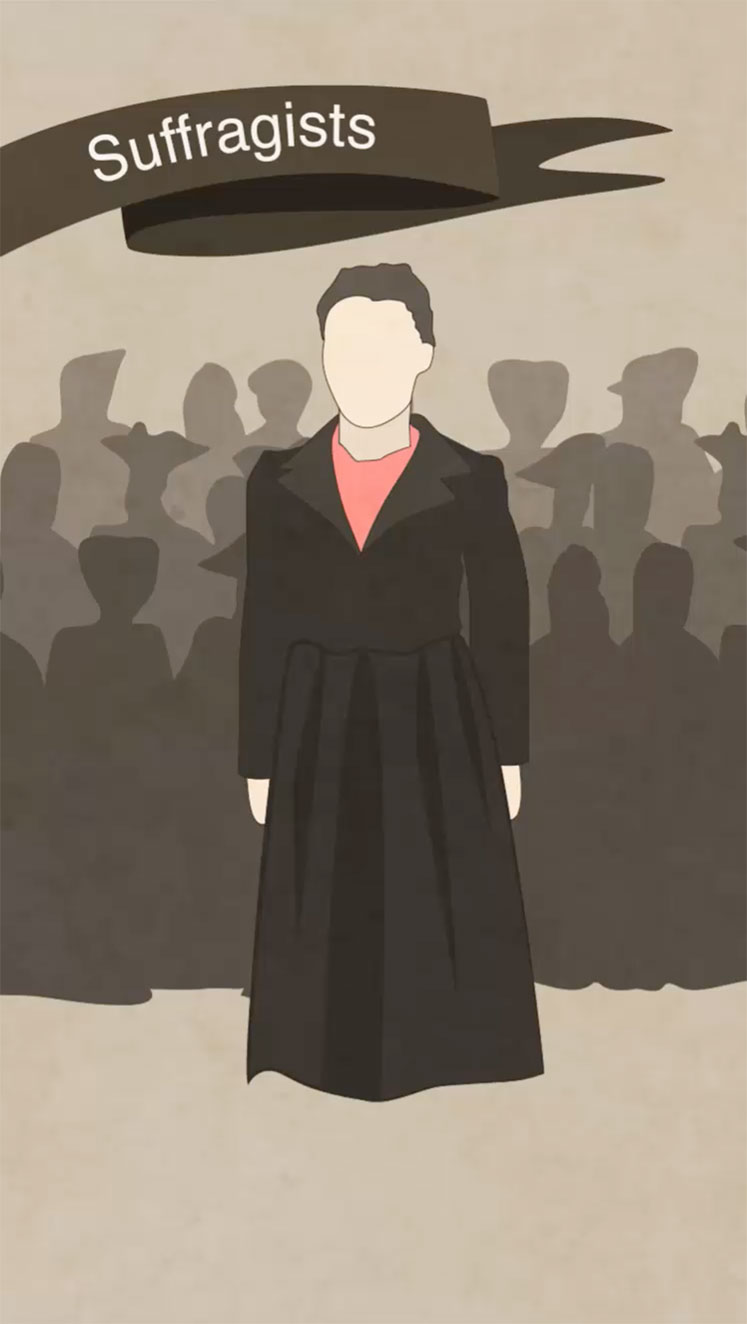
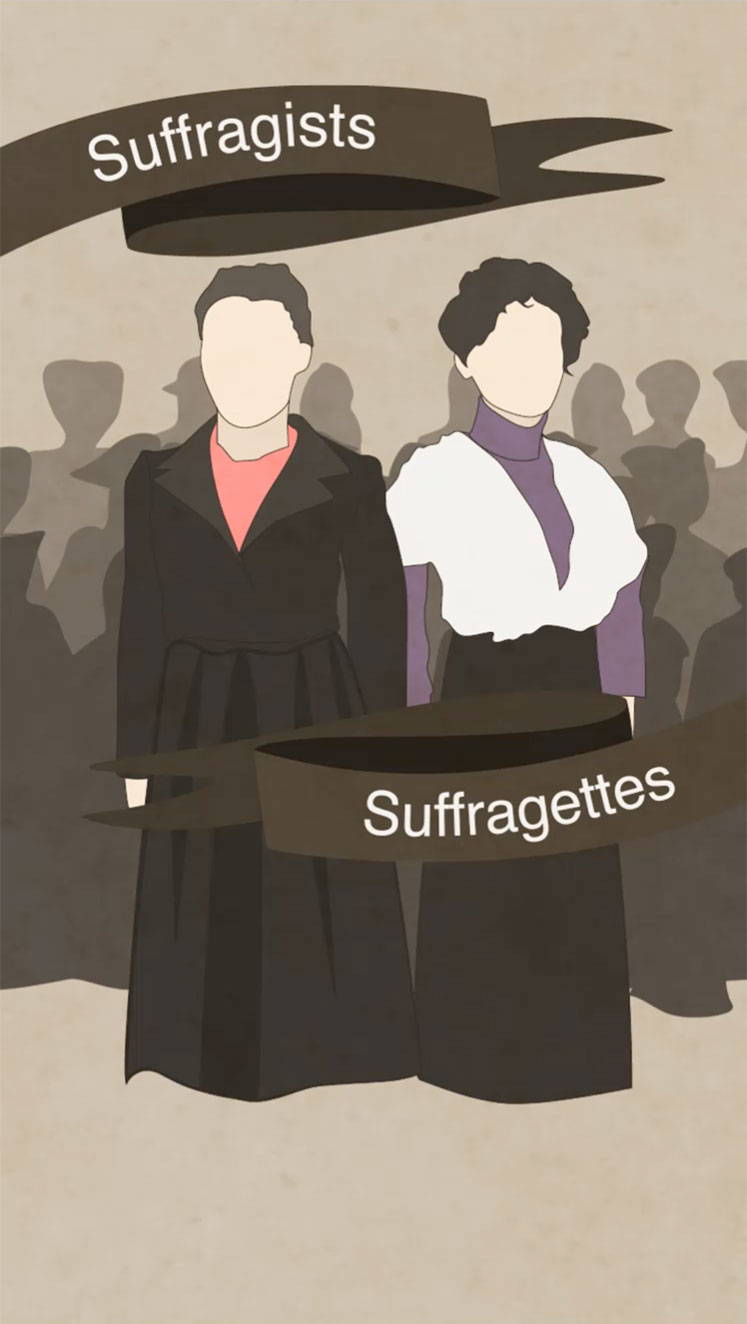
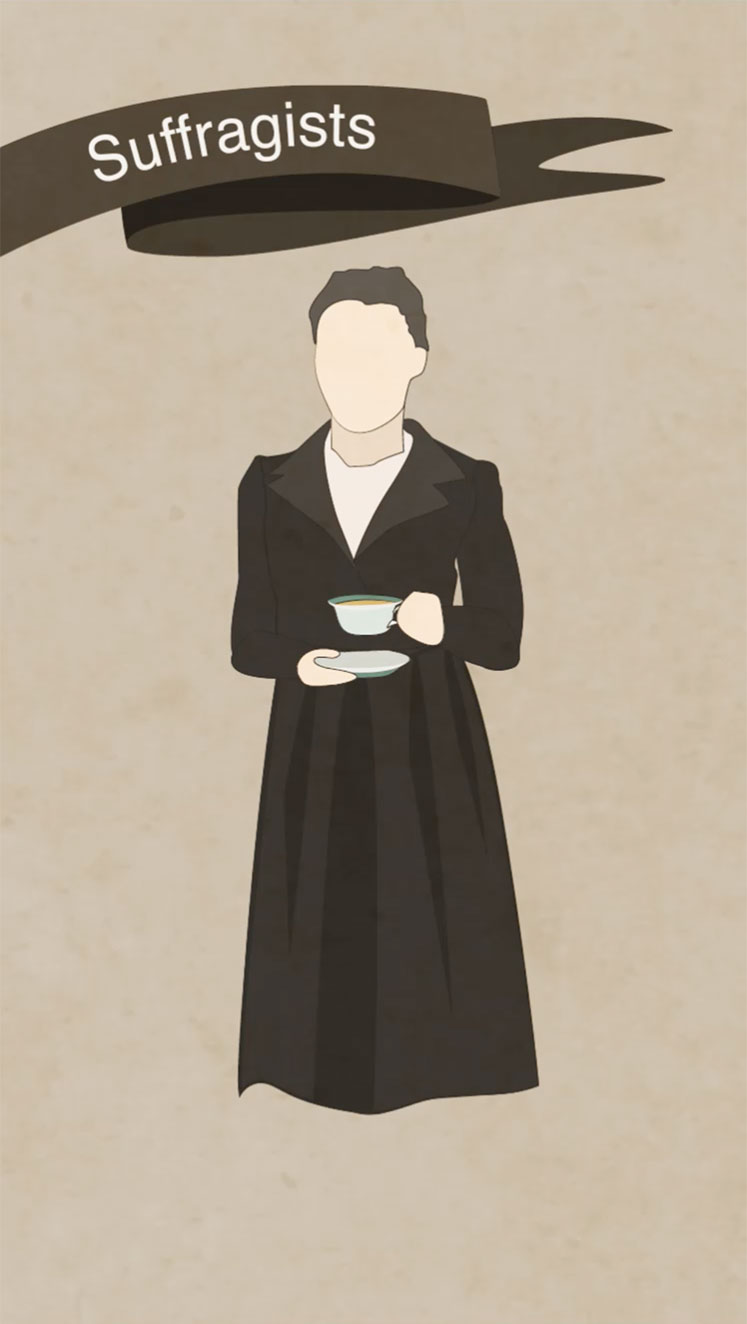
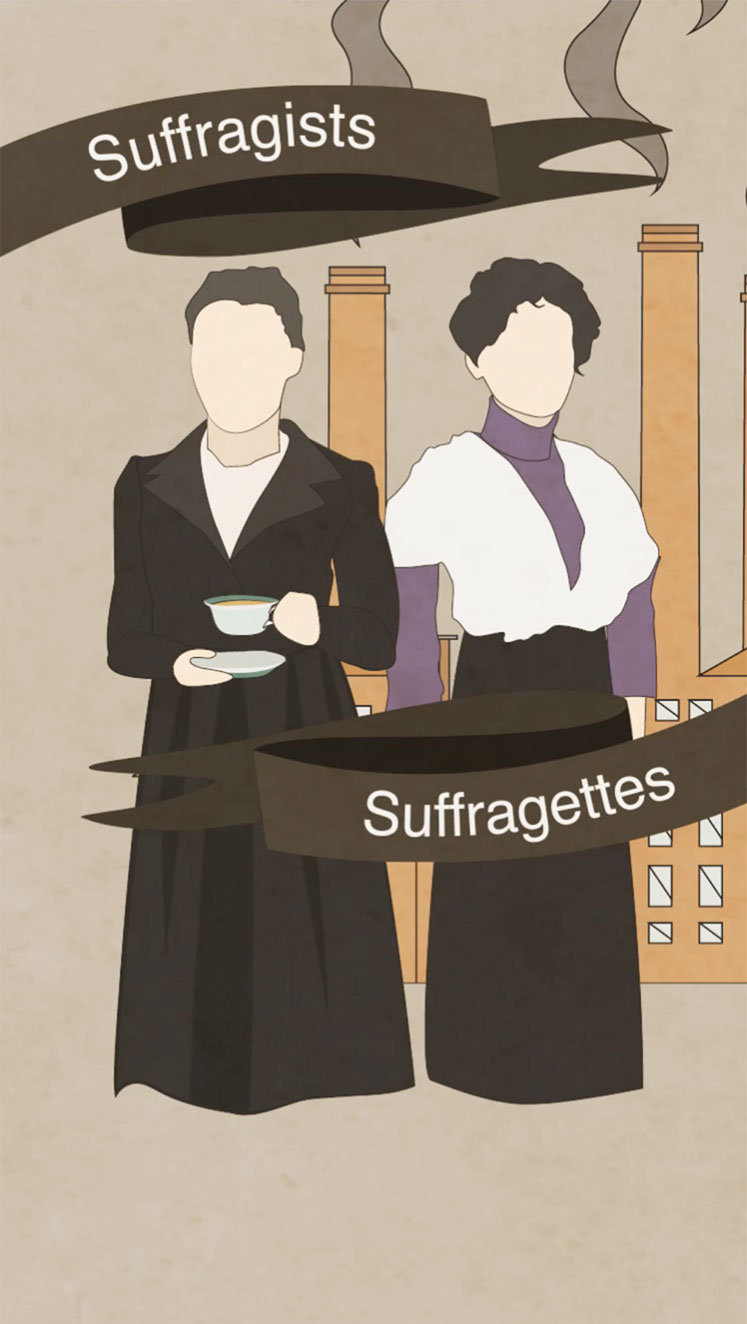
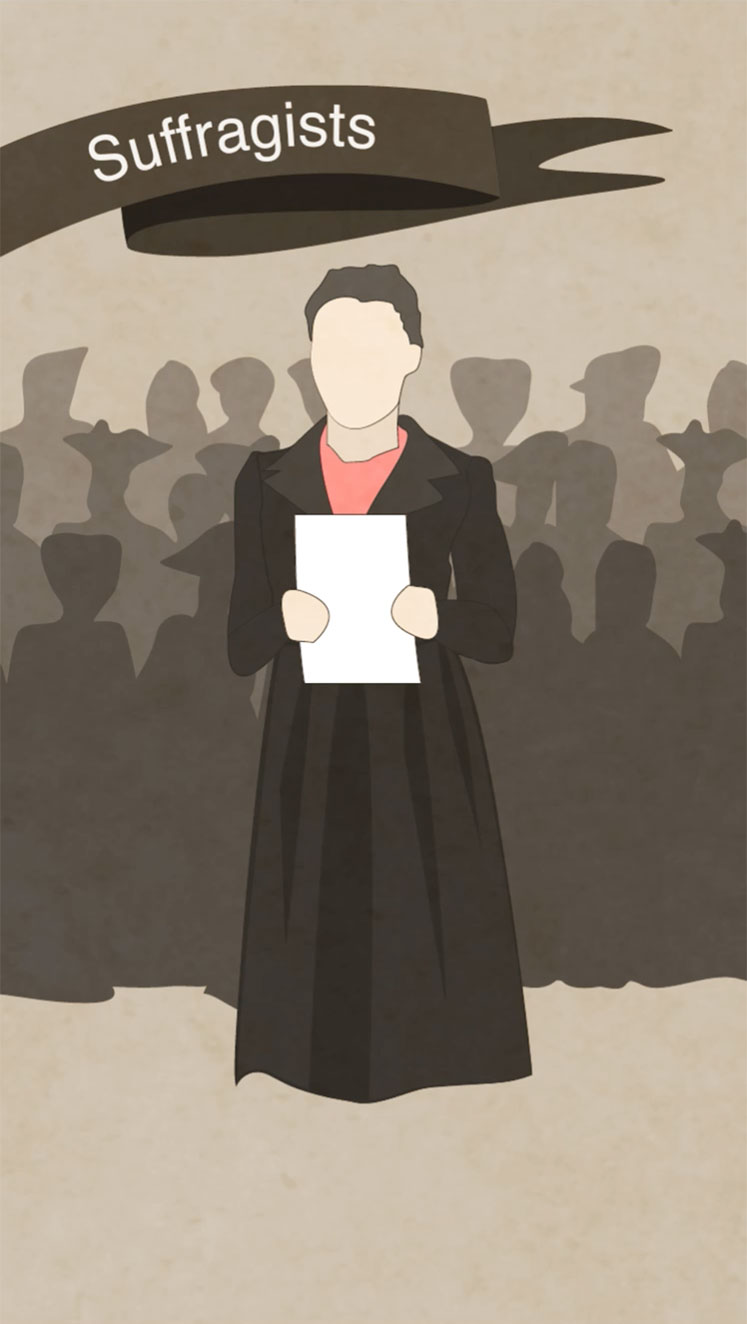
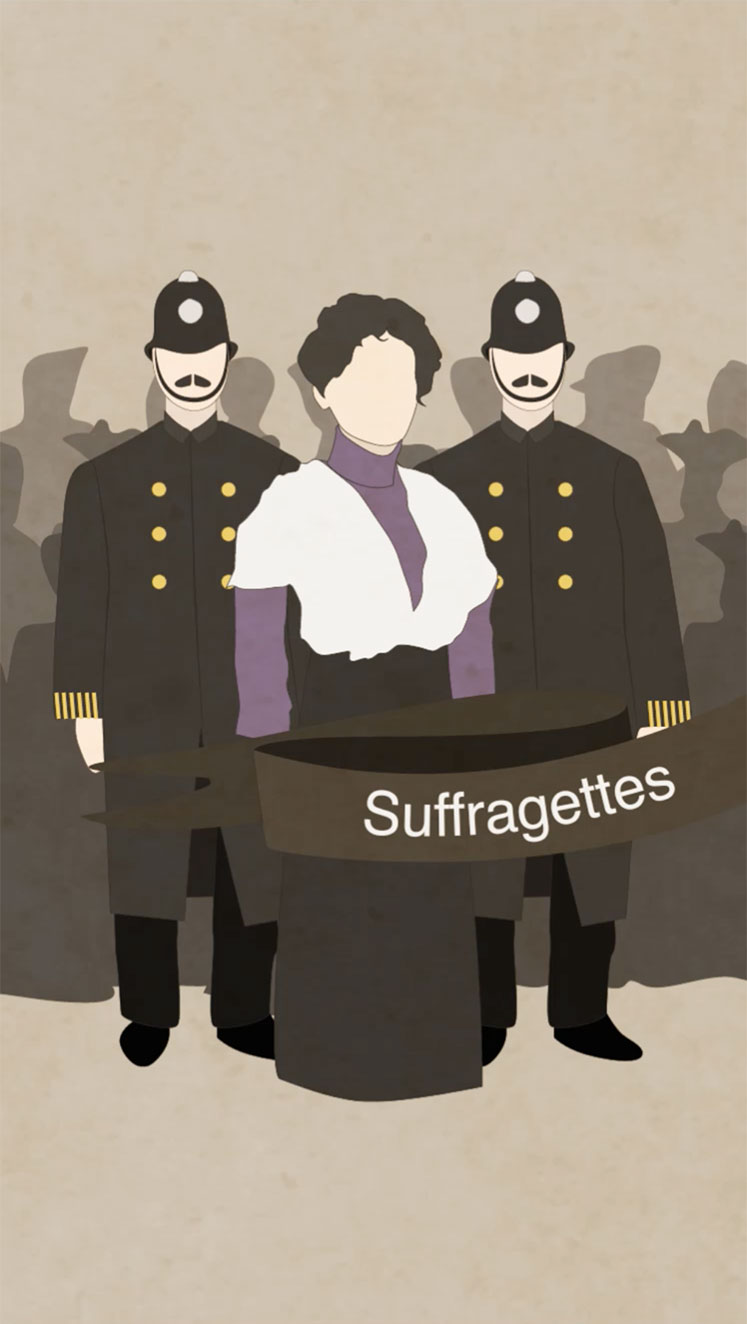
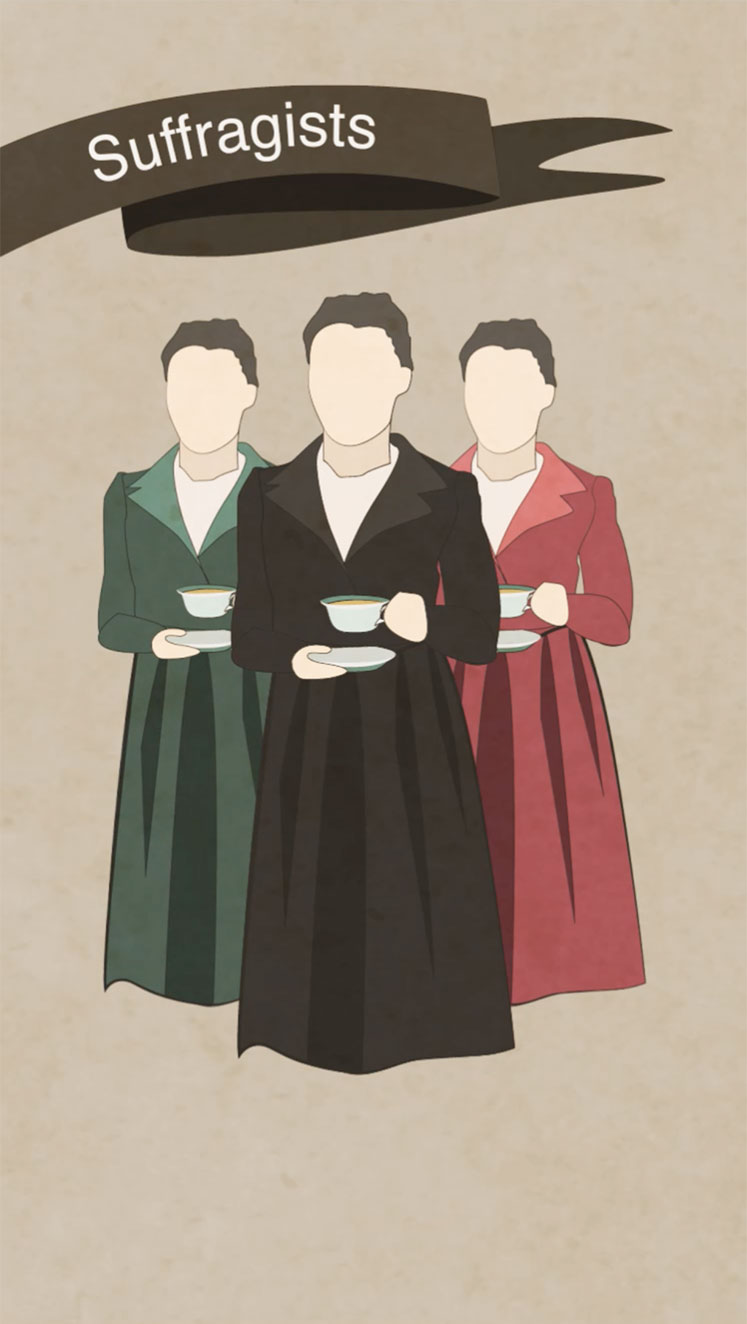
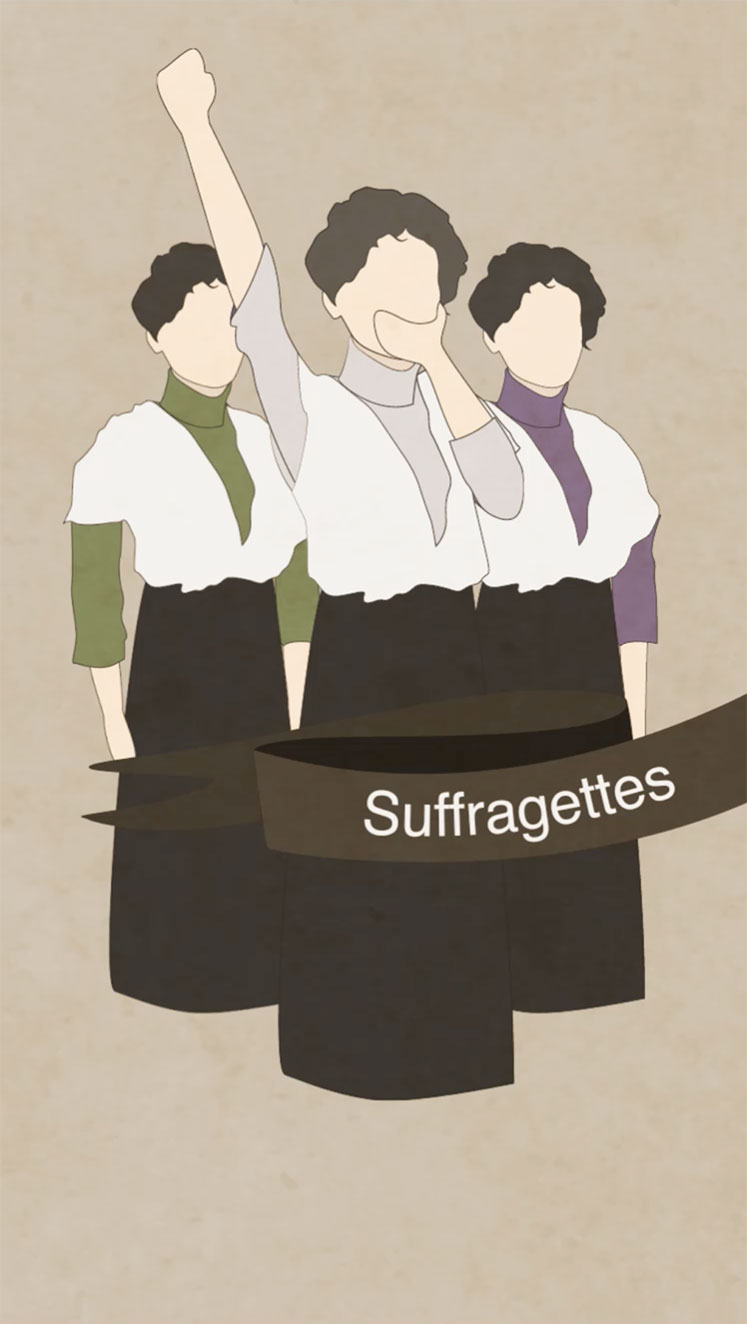
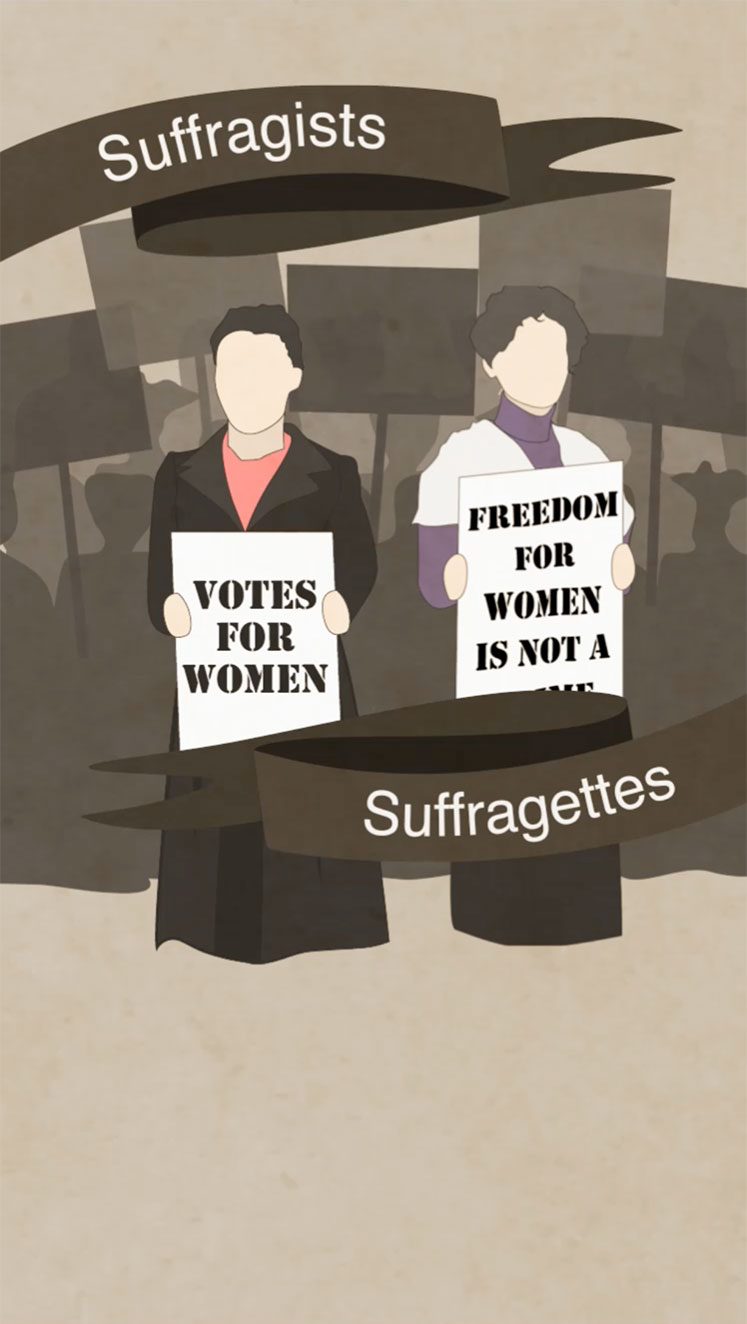
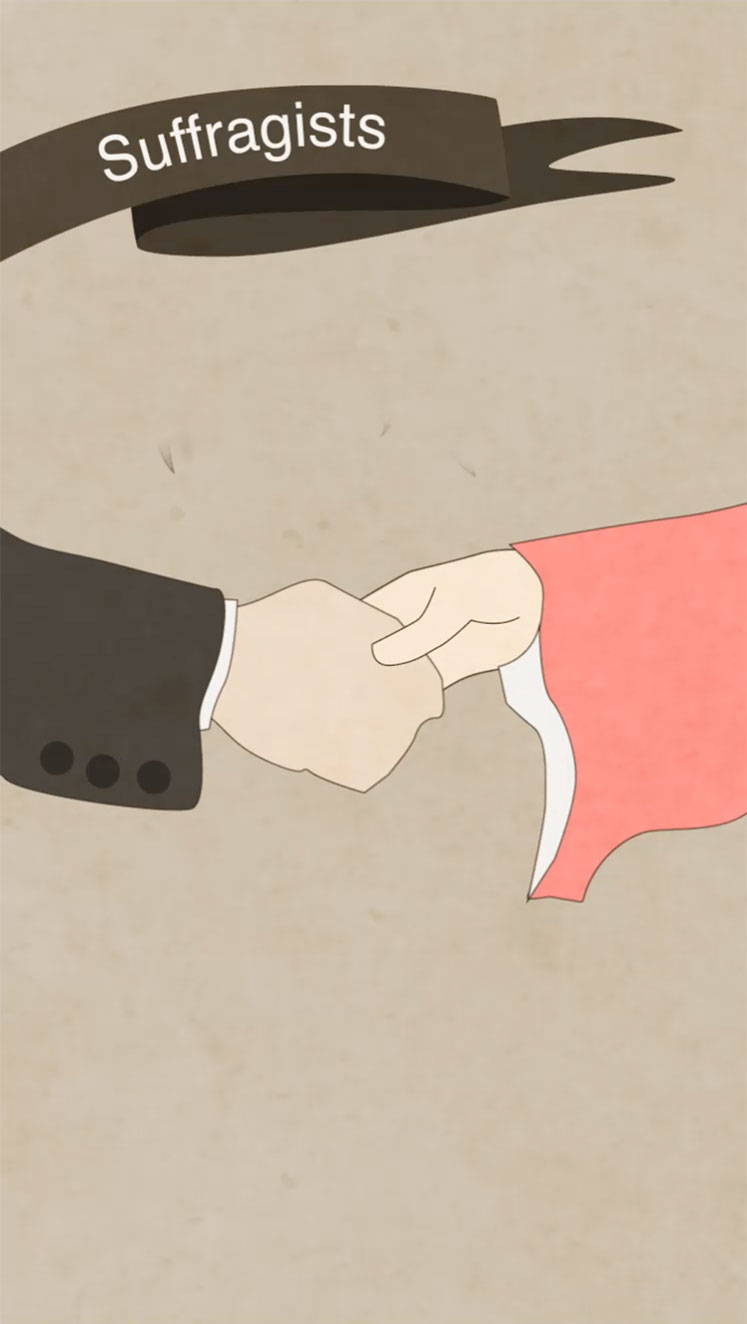
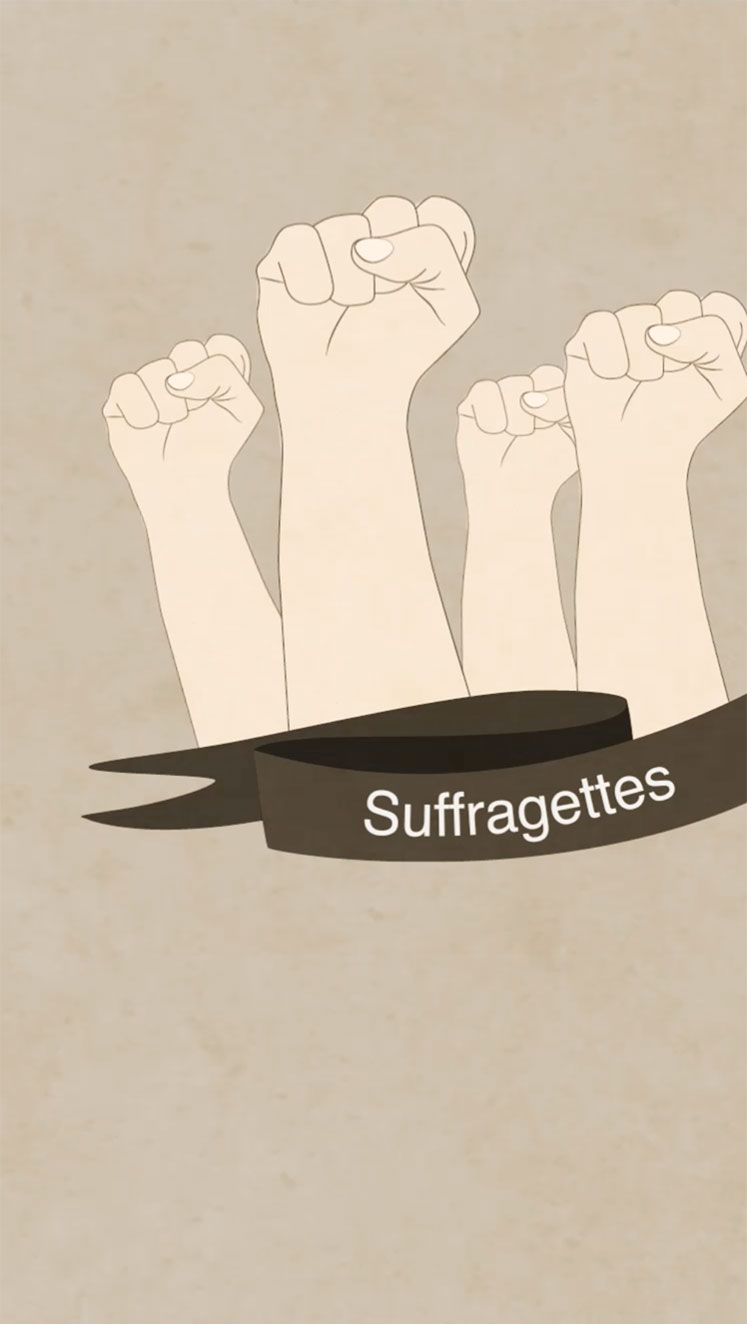
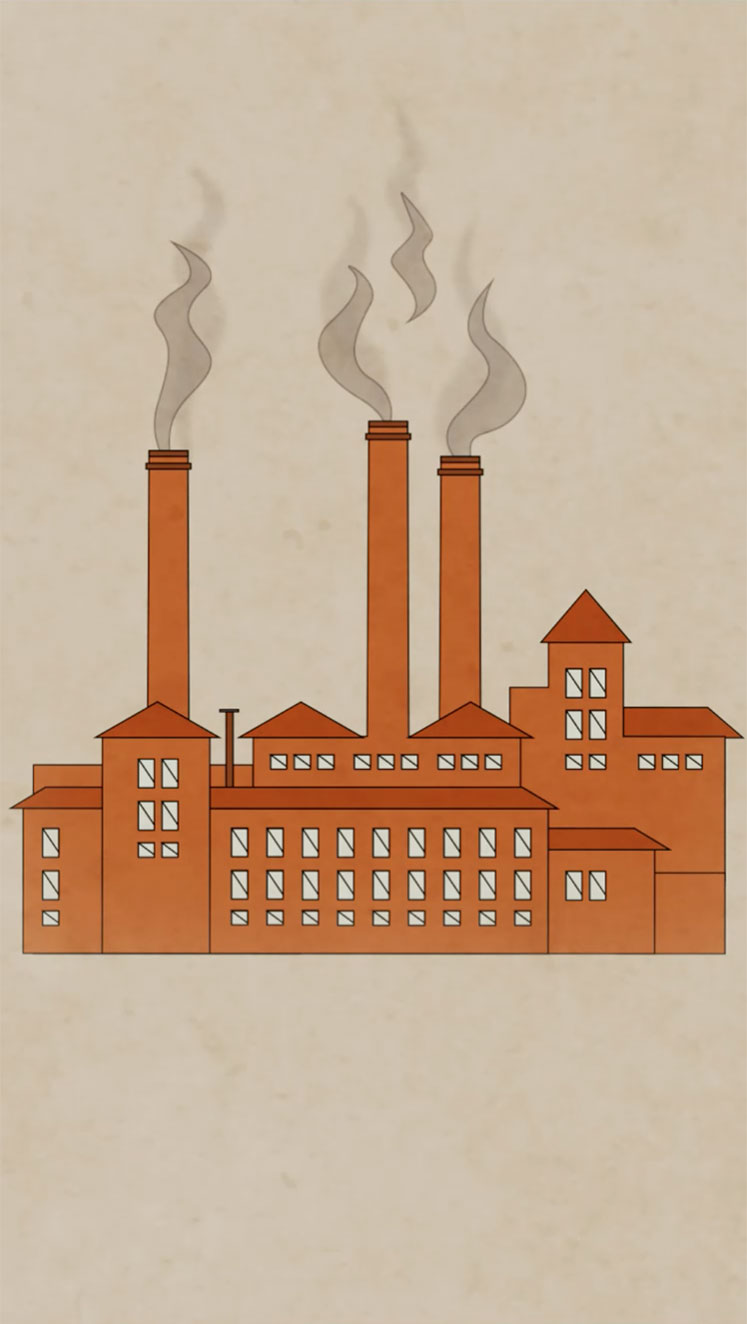
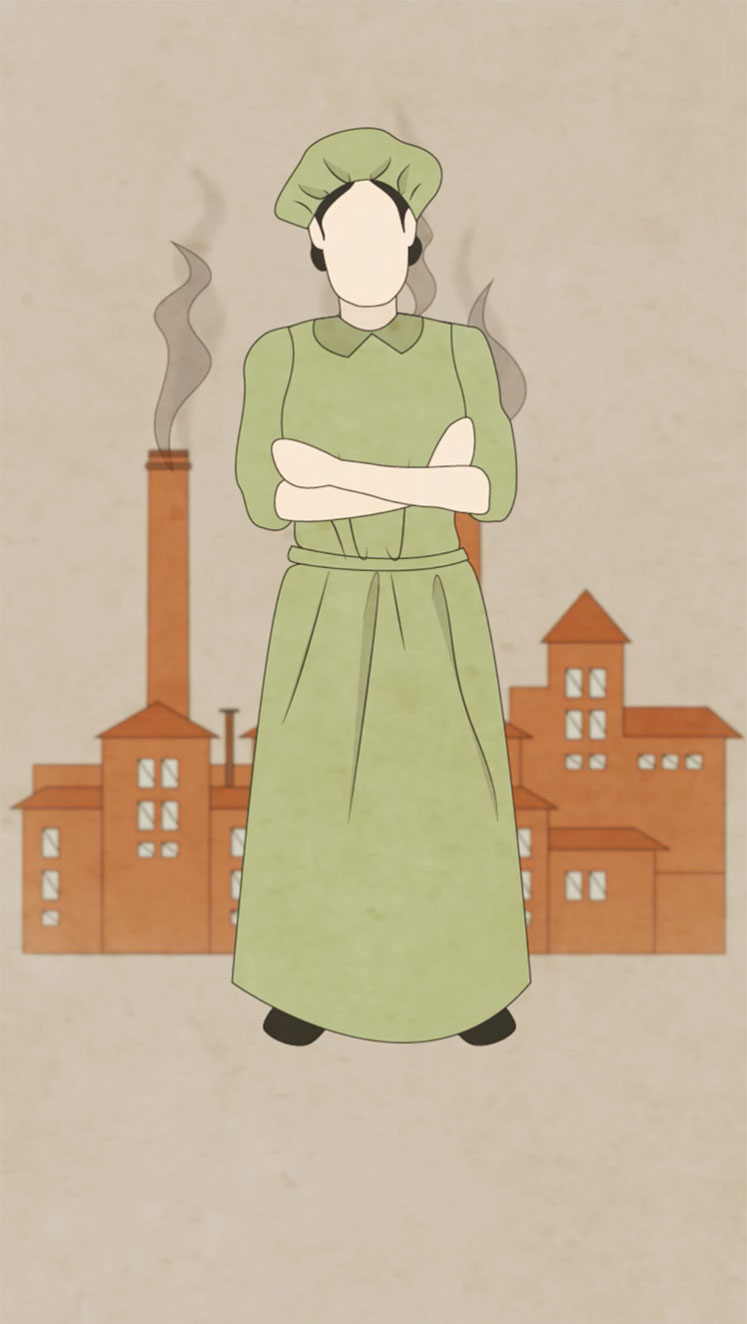






![[Video] How to get rid of bed bugs in Toronto](https://www.thehowtozone.com/wp-content/uploads/2019/10/maxresdefault-2-100x70.jpg)


